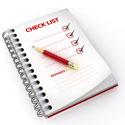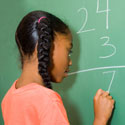English for the Thoughtful Child
by Beth
(St. Paul, MN)
English for the Thoughtful Child
Do your children surprise you with how they want to learn? Early on, my oldest called black and white texts "coloring books," and refused to be persuaded that they had anything to do with learning. He thought them to be busywork and would have nothing to do with them.
Perhaps it was the hope that osmosis would work grammar into three boys. Maybe the notion of Charlotte Mason's theory vs. my own hatred of grade school grammar that I wanted this to work. This curriculum intrigued me, as I thought I had thoughtful children. But no, I was wrong.
In the area of grammar, my boys needed/wanted/begged for workbooks. I kid you not. I was confounded by their request. Aren't we a homeschool family that believes workbooks are "bad?"
So this didn't work for us. I wondered why. I learned that the study of grammar is the first steps to learning logic. Once this dawned on me, I began to see why mine preferred workbooks to learn grammar. Rules, fill in the blanks, etc. Logic. Step-by-step. So my thoughtful children were thoughtful in other ways and I didn't really put up too much of a fight in switching from this to A Beka.
What a beautiful book!
by Guinever
(Lexington, KY)
Product: English for the Thoughtful Child
Subject: language Arts
Levels Used: beginner
Likes: I bought this because it was recommended by Susan Wise Bauer and it looked good. I am not disappointed.
First published in 1903 by Mary Hyde, the newly updated edition by Cynthia Shearer retains the charm of an earlier era with its whimsical drawings and paintings. This book is just delightful and makes you want to cuddle up on the couch with your young children and read to them or go outside for a nature walk.
This book is an all-compassing language arts for beginners--lower grammar age children.
Dislikes: I wish there was a sequel for older kids.
You Might Also Like:

|

|

|
| Read More Homeschool Curriculum Reviews! | View Sample Homeschool Schedules and Create Your Own | Check Out these Homeschool School Rooms |